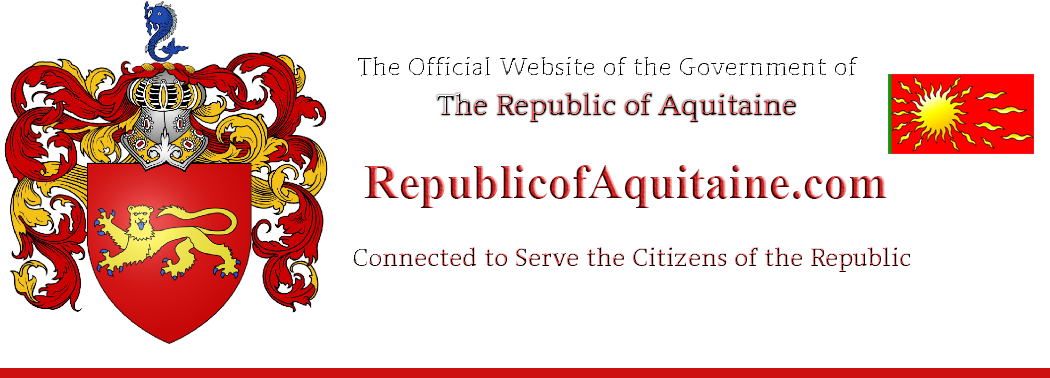Titles of Nobility FAQAll Republic of Aquitaine titles are hereditary and honorary (titular). Titles of nobility exist today in many countries. The term originally referred to those who were "known" or "notable" and was applied to the highest social class in pre-modern societies. Nobility is a historical, social and often legal notion, which should not be confused with socio-economic status which is mainly based on income and possessions. How and when you choose to use your title is up to you. Similar in the sense of the use of the term “Doctor” or “Dr.” when someone has a PhD. or medical degree. To friends and family, “Dr. William Smith”, may always be known as “Bill”. Whereas in public he may insist that he be addressed as Doctor. Likewise your new noble title may or may not be used according to the situation. The use of your noble title in public on identification, contracts, ownership vesting, credit cards, etc. is always subject to the issuing companies or agencies involved. Using the “Doctor” example, some agencies may not allow the inclusion of “Dr.” in someone’s name regardless of how long a person has had it or where it was earned. Another example is Sir Paul McCartney. His Knighthood is well known, yet quite often he is referred to as simply Paul McCartney, or McCartney. Your Title Warrant establishes your nobility. It is signed by the head of state of the Republic of Aquitaine, Grand Duke Thomas II. Anyone that inquires through the Republic of Aquitaine website as to the status of a specific persons title can also confirm it. The exact vesting of your title will read, for example, "John Rogers Smith shall be styled, entitled and called, Baron John Rogers Smith". There is some flexibility with this format, please inquire if you want it different. As with all noble titles awarded by the Republic of Aquitaine, if a person identifies with the historic qualities attributed to that title, or simply desires the prestige and respect that accompany a noble title, they can request one. Some of the historic details of the titles are listed below. Marquis A marquis is a nobleman of hereditary rank in various European monarchies and some of their colonies. The term originally denoted a count holding a march, or mark (frontier district). They were originally counts who were granted extra powers because they guarded border areas. This gave them precedence over other counts (in England, earls). Knight The knight was one of three types of fighting men during the middle ages: Knights, Foot Soldiers, and Archers. Knights believed in the code of chivalry. They promised to defend the weak, be courteous to all women, be loyal to their king, and serve God at all times. Knights were expected to be humble before others, especially their superiors. Knighthood was eventually merged into the nobility as a lower noble title. Count A count or countess is a nobleman (woman). The word count from Latin—meaning "companion", and later "companion of the emperor" or "delegate of the emperor". The British equivalent is an earl. In the late Roman Empire, the Latin title comes meaning (imperial) 'companion' denoted the high rank of various courtiers and provincial officials, either military or administrative. A Count was generally in charge of a county or territory. Baron Initially those who held land directly from the king by military service, all bore alike the title of baron, which was thus the factor uniting all members of the ancient baronage as peers one of another. Duke The highest rank of nobility below the King or monarch with the exception of "Grand Duke". The word originates from the French word meaning "leader". Please contact us to inquire on the availability of these titles. |
